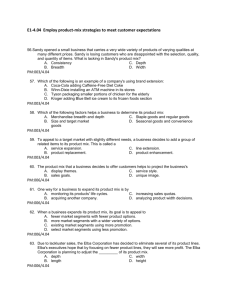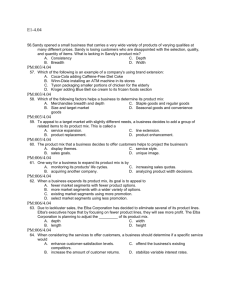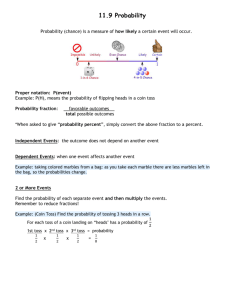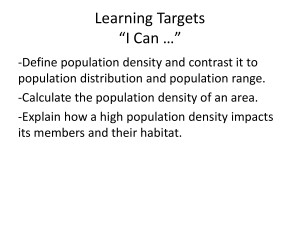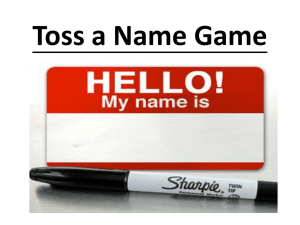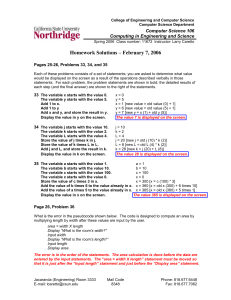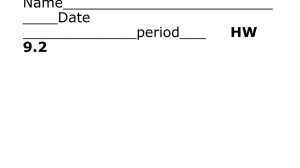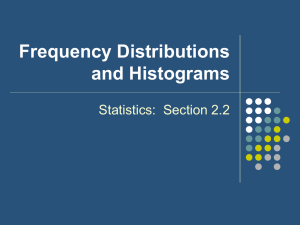Randomly select an independent growth rate for the following linear
advertisement
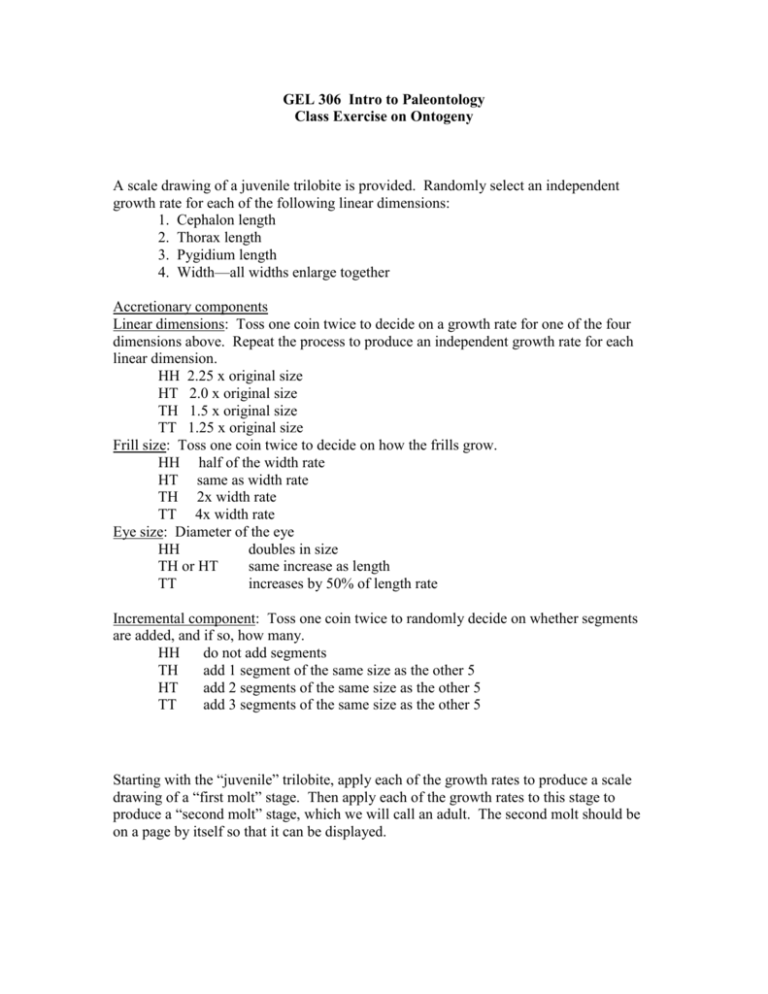
GEL 306 Intro to Paleontology Class Exercise on Ontogeny A scale drawing of a juvenile trilobite is provided. Randomly select an independent growth rate for each of the following linear dimensions: 1. Cephalon length 2. Thorax length 3. Pygidium length 4. Width—all widths enlarge together Accretionary components Linear dimensions: Toss one coin twice to decide on a growth rate for one of the four dimensions above. Repeat the process to produce an independent growth rate for each linear dimension. HH 2.25 x original size HT 2.0 x original size TH 1.5 x original size TT 1.25 x original size Frill size: Toss one coin twice to decide on how the frills grow. HH half of the width rate HT same as width rate TH 2x width rate TT 4x width rate Eye size: Diameter of the eye HH doubles in size TH or HT same increase as length TT increases by 50% of length rate Incremental component: Toss one coin twice to randomly decide on whether segments are added, and if so, how many. HH do not add segments TH add 1 segment of the same size as the other 5 HT add 2 segments of the same size as the other 5 TT add 3 segments of the same size as the other 5 Starting with the “juvenile” trilobite, apply each of the growth rates to produce a scale drawing of a “first molt” stage. Then apply each of the growth rates to this stage to produce a “second molt” stage, which we will call an adult. The second molt should be on a page by itself so that it can be displayed.
